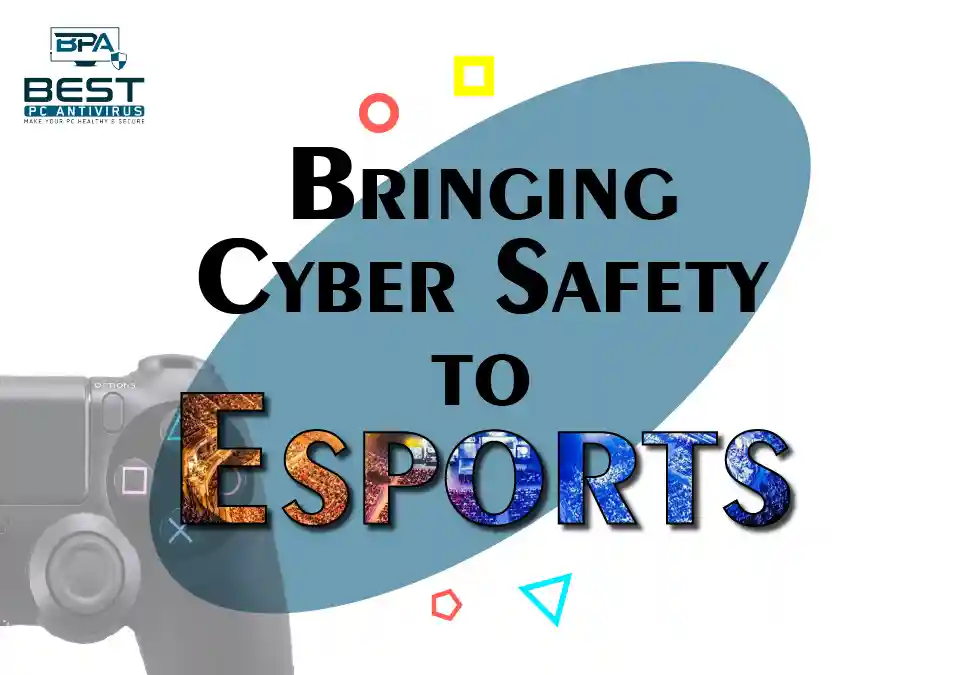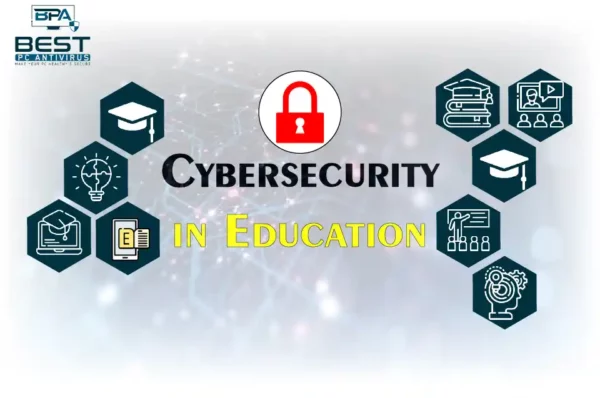All of the mums on this planet, including me, are worried about this topic. Y’all on the other hand though…anyway. Listen up close, today we are going to learn about exactly how not to get messed up because of data breaching in Esports. It’d be good for you to know about cyber safety.
What is Esports and What Are the Challenges of Keeping It Safe?
Esports refers to competitive video gaming where players compete against each other in organized tournaments, leagues, and events. Esports has grown rapidly in popularity in recent years and has become a billion-dollar industry with millions of fans and players worldwide.
However, like any other sport or competitive activity, esports faces various challenges in terms of safety and security. Some of the challenges of keeping esports safe include:
Cheating
Cheating is a major concern in esports, and it can take many forms, including hacking, exploiting game bugs, and collusion with other players. Cheating not only undermines the integrity of the game but can also have significant financial implications for the industry.
Online Harassment
Esports players and fans are often targeted with online harassment, including hate speech, threats, and other forms of abuse. This can have a negative impact on the mental health and well-being of players and can also deter new players from entering the esports scene.
Match-Fixing
Match-fixing refers to the manipulation of the outcome of a competitive match for financial gain. It is a significant threat to the integrity of esports, as it can undermine the credibility of the industry and lead to significant financial losses.
Cybersecurity
Esports tournaments and events involve significant amounts of data, including player and fan information, payment details, and other sensitive information. This makes the industry a prime target for cybercriminals, who can steal valuable data and cause financial and reputational damage.
Player Welfare
Esports players often spend long hours practicing and competing, which can have a negative impact on their physical and mental health. It is important for the industry to take steps to ensure the safety and well-being of players, including providing access to healthcare, mental health support, and proper rest.
The bottom-line is that esports faces various challenges in terms of safety and security. The industry better addresses and responds to these challenges soon. And let our kids have time for University.
Securing Your Esports Ecosystem with 4 Essential Tips
Anyway, as esports continues to grow, ensuring the security of your esports ecosystem is becoming increasingly important. Here are four essential tips to help you secure your esports ecosystem (kiddos, please pay attention, especially you Ryan):
Implement Strong Authentication
Strong authentication is a must to secure your esports ecosystem. Encourage players and staff to use two-factor authentication (2FA) or multi-factor authentication (MFA) to prevent unauthorized access to accounts. Consider implementing biometric authentication for extra security.
Monitor for Suspicious Activity
Be vigilant and monitor for any unusual activity, such as an unusually high volume of transactions or logins from different locations. If you detect any suspicious activity, investigate it immediately.
Educate Players and Staff
Educate your players and staff on the importance of security and how to avoid common security risks, such as phishing attacks and malware. Provide regular security awareness training and ensure that everyone is aware of the risks.
Keep Your Software Up to Date
Keep your software, including operating systems, applications, and antivirus software, up to date to ensure that you are protected against the latest security threats.
By implementing these four essential tips, you can help secure your esports ecosystem and protect your players, staff, and the overall integrity of your esports organization.
Role of Organizations and Governments in Protecting the Esports Industry
The esports industry is a rapidly growing sector with significant economic and social impact. As the industry continues to expand, the role of organizations and governments in protecting it becomes increasingly important. Here are some ways that organizations and governments can protect the esports industry:
Developing Regulations and Guidelines
Governments can develop regulations and guidelines that govern the operations of esports organizations, including requirements for player safety, fair competition, and financial transparency. This can help ensure that players are protected from exploitation and abuse, and that the industry operates in a fair and transparent manner.
Providing Funding and Support
Governments and organizations can provide funding and support for esports initiatives, such as scholarships for esports players, development of esports training facilities, and funding for esports tournaments and events. This can help promote the growth of the industry and provide opportunities for players to develop their skills and compete at a high level.
Investing in Cybersecurity
As esports becomes increasingly popular, the risk of cyberattacks on gaming platforms and tournaments is also growing. Organizations and governments can invest in cybersecurity measures to protect the industry from these threats, including secure networks, data encryption, and advanced authentication methods.
Promoting Diversity and Inclusivity
Organizations and governments can work to promote diversity and inclusivity in esports, including efforts to increase representation of women, people of color, and other marginalized groups. This can help ensure that the industry reflects the diversity of its audience and provides equal opportunities for all players.
How to Choose the Right Cyber Safety Solution for Your Esports Team
When it comes to choosing the right cyber security solution for your esports team, there are a few factors to consider. Here are some tips to help you make an informed decision:
Point #1 Identify Your Team’s Specific Needs
Consider the unique risks and threats that your team faces. For example, do you have valuable intellectual property or player data that needs to be protected? Do you need to secure your network from DDoS attacks? Make a list of your team’s specific security requirements so you can look for solutions that address those needs.
Point #2 Research Your Options
Once you’ve identified your team’s security needs, research the various cyber security solutions available. Look for solutions that offer features like anti-malware protection, network monitoring, DDoS protection, and encryption. Read reviews from other esports teams or industry experts to get an idea of which solutions are most effective.
Point #3 Consider Ease of Use
A cyber security solution is only effective if it’s easy for your team to use. Look for solutions that offer a user-friendly interface and simple installation process. If your team is already using specific software or hardware, make sure the cyber security solution you choose is compatible with those tools.
Point #4 Evaluate Costs
Cyber security solutions can range in price, so it’s important to evaluate the cost of each option. Consider the total cost of ownership, including licensing fees, maintenance costs, and any other associated expenses. Look for solutions that offer a good balance between affordability and effectiveness.
Understanding the Impact of Cyber Security on Player Performance and Well-Being
Cyber security can have a significant impact on the performance and well-being of esports players. Here are some ways in which cyber security can affect players:
Downtime
If an esports team’s systems are compromised due to a cyber attack, it can result in downtime and disrupt the team’s practice and training schedules, which can ultimately impact their performance.
Stress and Anxiety
Cyber security threats can create stress and anxiety among players, which can negatively affect their mental well-being and ultimately impact their performance.
Data Privacy
Cyber security breaches can lead to the exposure of sensitive player information, such as personal and financial data, which can cause players to feel violated and anxious.
Trust and Confidence
Cyber security incidents can damage the trust and confidence players have in their organization, which can lead to a decrease in motivation and a negative impact on their performance.
To mitigate these impacts, esports organizations should prioritize cyber security measures and provide education and training to players on how to identify and mitigate potential threats. This can include implementing secure communication channels, educating players on the importance of strong passwords and multi-factor authentication, and conducting regular security audits and assessments. By taking proactive steps to protect their systems and players, esports organizations can help ensure the well-being and success of their teams.
FAQs
What is esports, and what are the challenges of keeping it safe?
Esports refers to competitive video gaming where players compete against each other in organized tournaments, leagues, and events. Challenges of keeping esports safe include cheating, online harassment, match-fixing, cybersecurity, and player welfare.
What are some essential tips to secure the esports ecosystem?
Some essential tips to secure the esports ecosystem include implementing strong authentication, monitoring for suspicious activity, educating players and staff, and keeping software up to date.
What is the role of organizations and governments in protecting the esports industry?
Organizations and governments can protect the esports industry by developing regulations and guidelines, providing funding and support, investing in cybersecurity, and promoting diversity and inclusivity.
How do you choose the right cybersecurity solution for your esports team?
To choose the right cybersecurity solution for your esports team, identify your team’s specific needs, research your options, evaluate the solutions, and consider the cost and ease of use.
What are some common security risks in esports, and how can you avoid them?
Common security risks in esports include phishing attacks, malware, cheating, and cyberattacks. You can avoid them by implementing strong authentication, keeping software up to date, educating players and staff, monitoring for suspicious activity, and investing in cybersecurity.
Read More : Cybersecurity: Securing the Retail Sector




